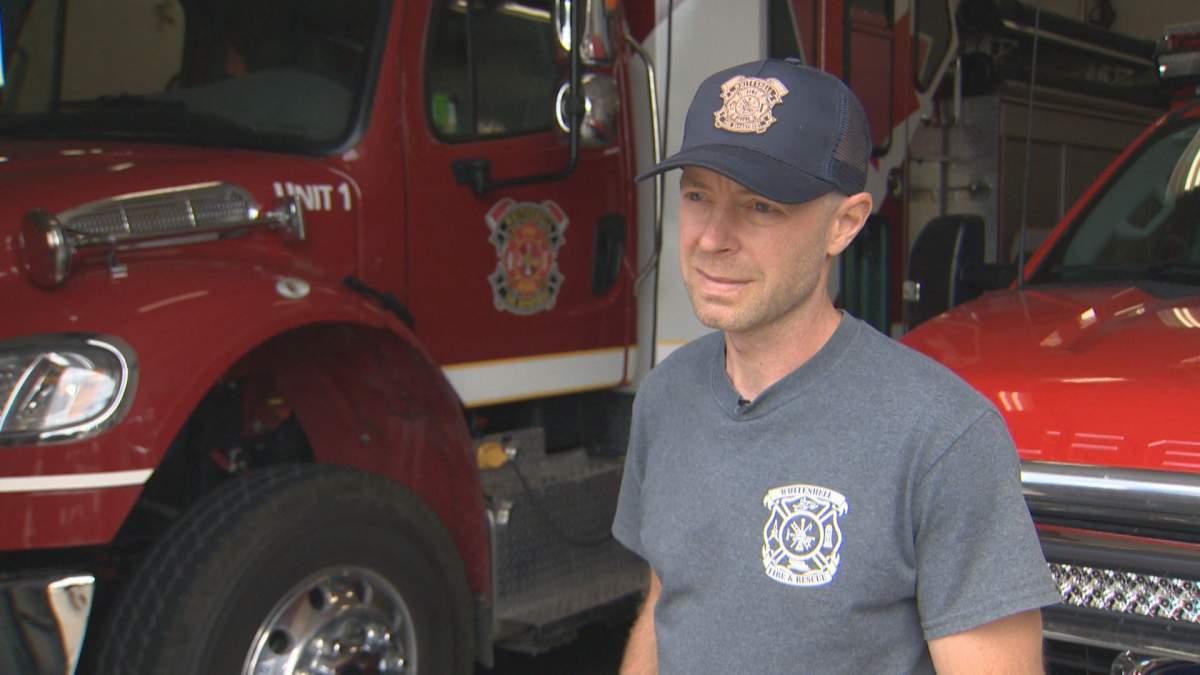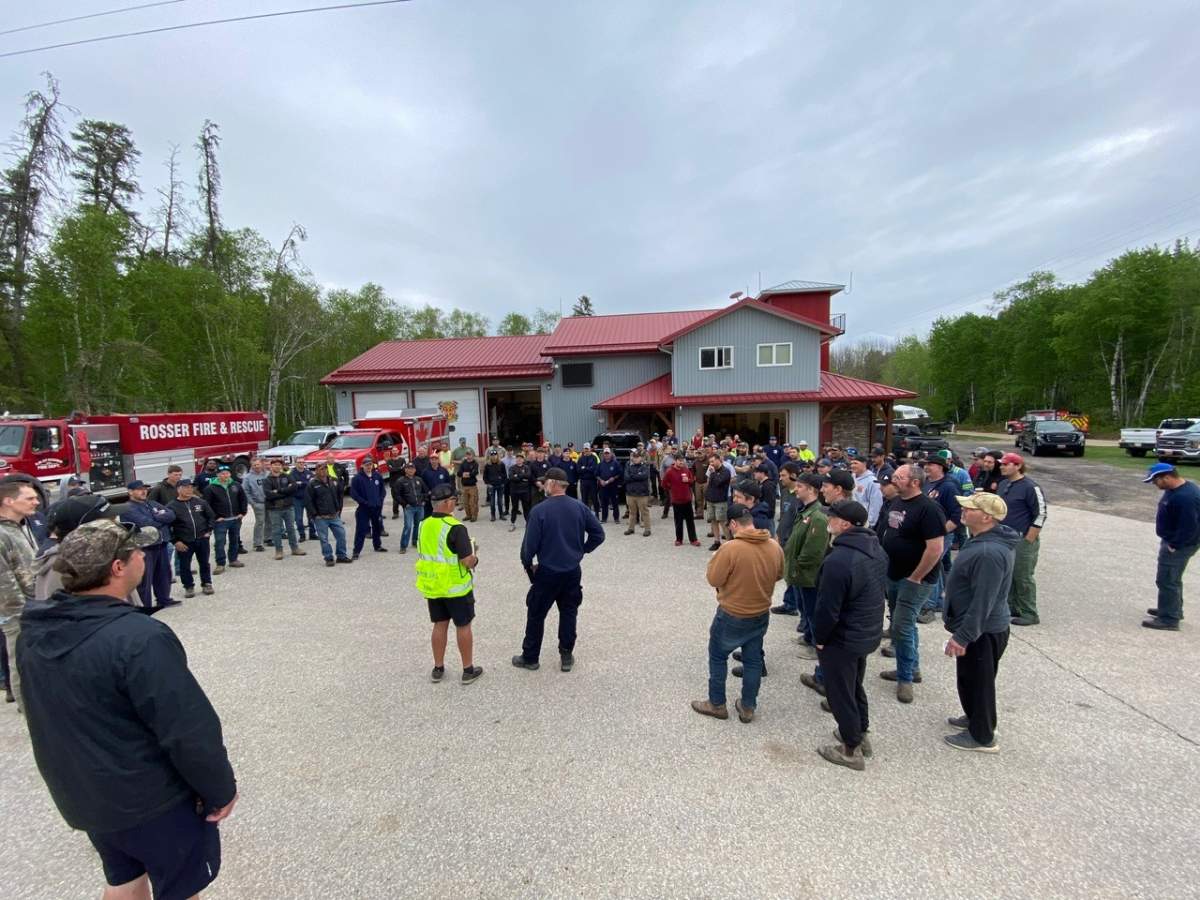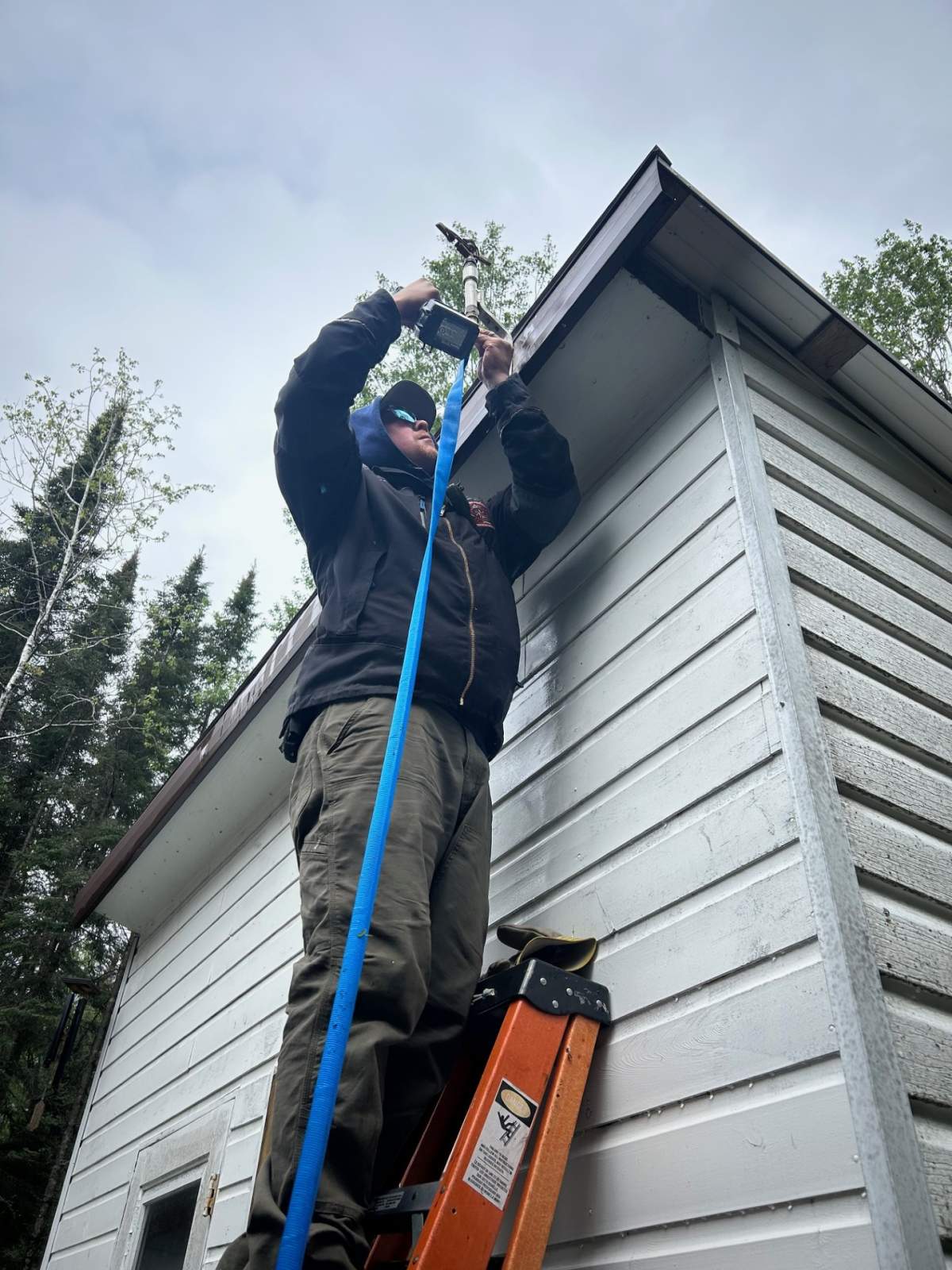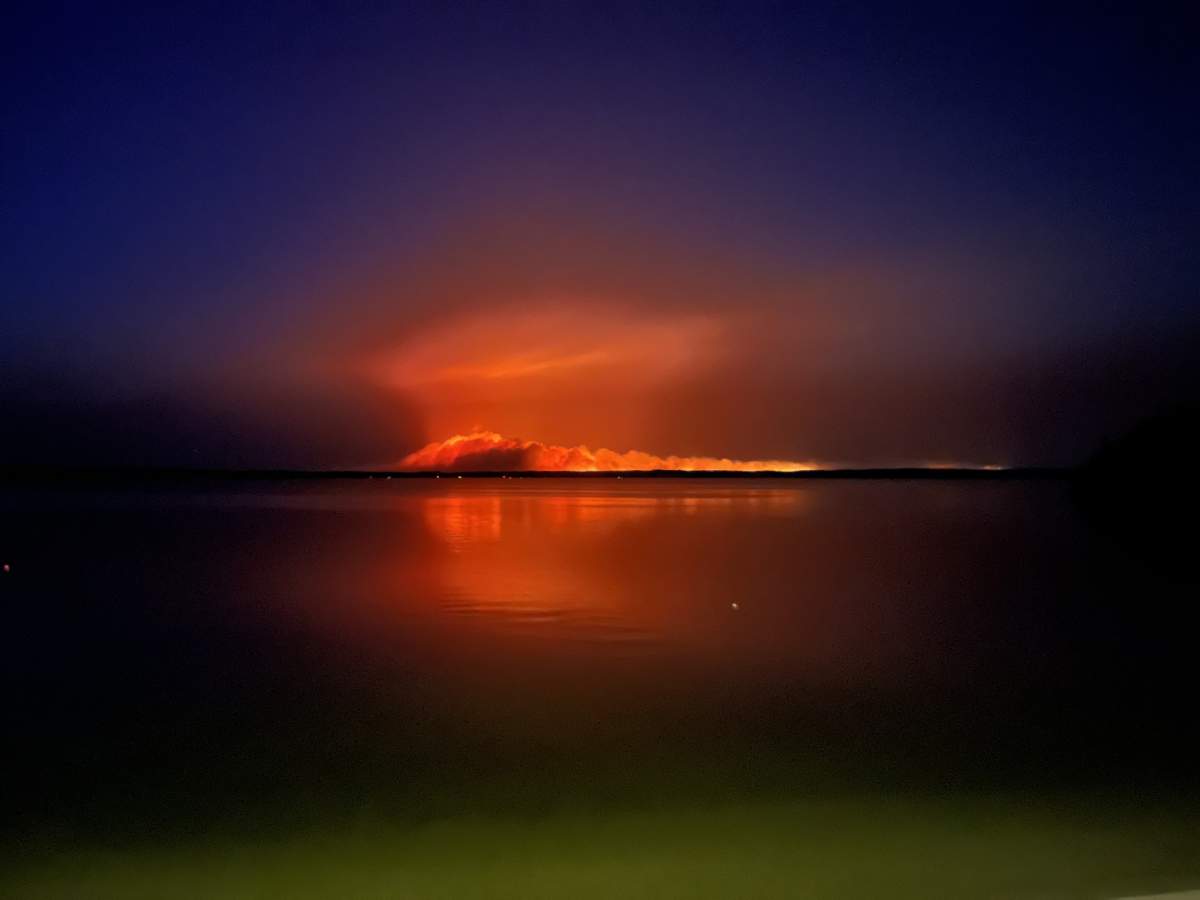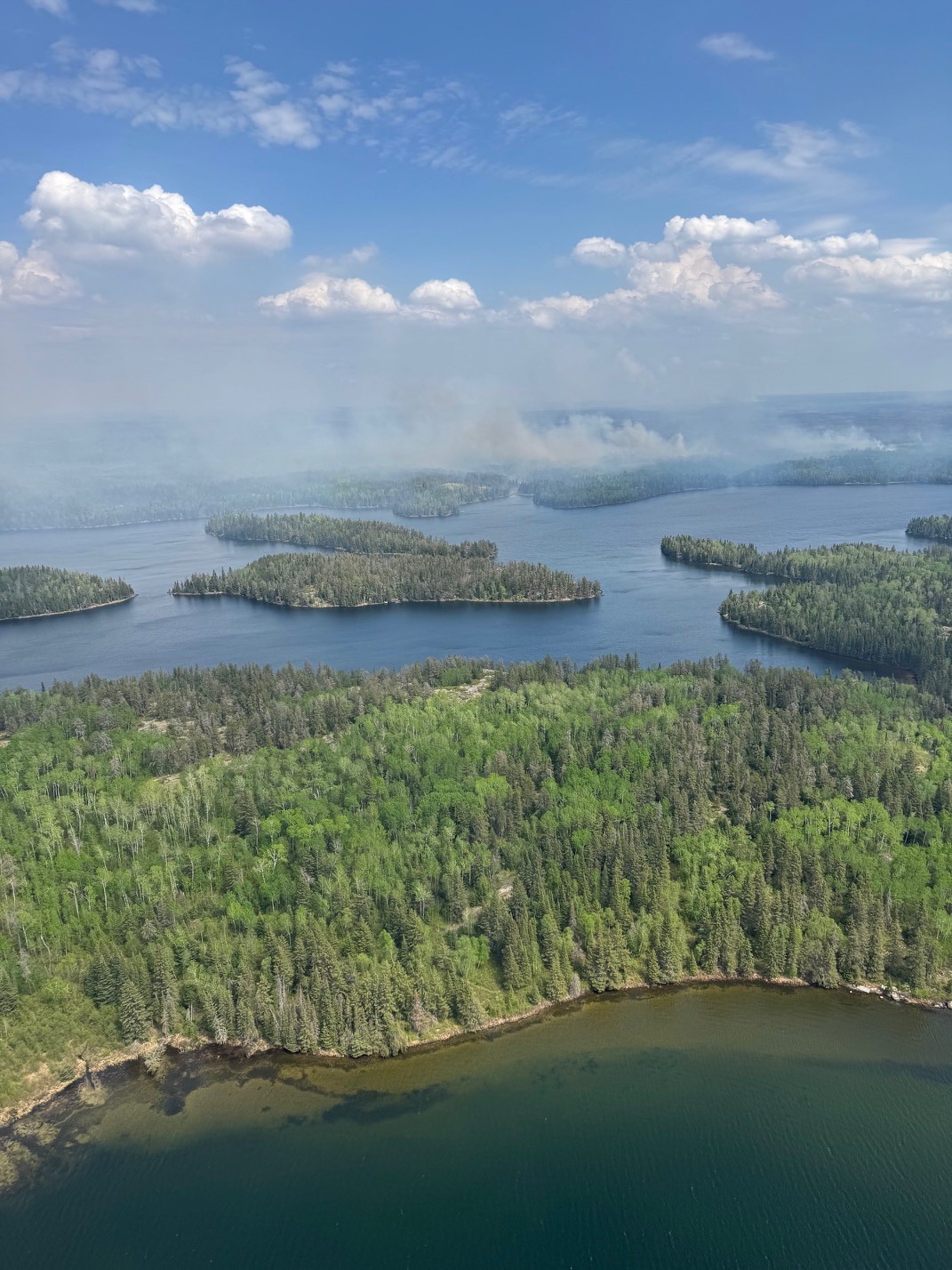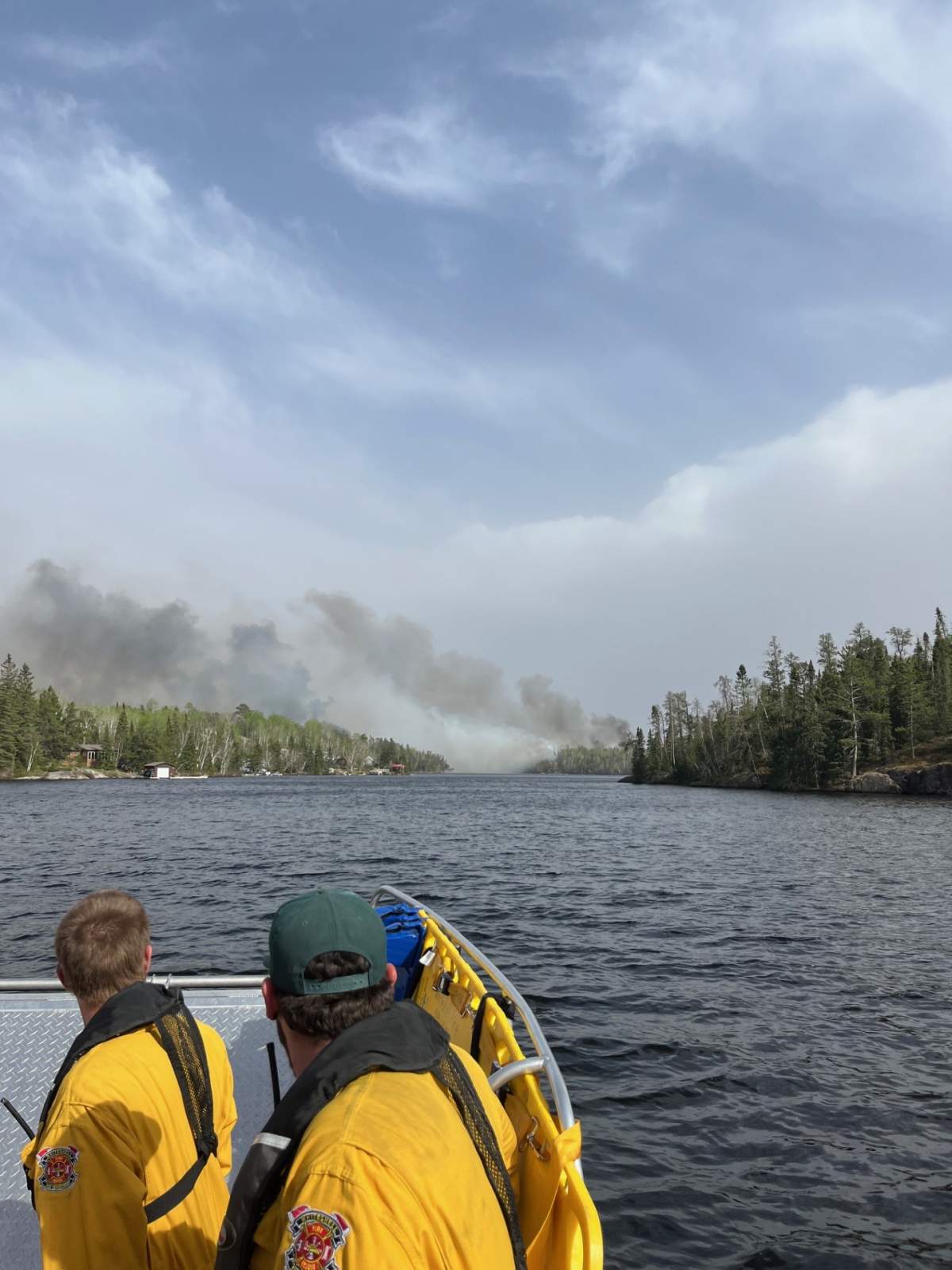Communities across Manitoba have been battling out-of-control wildfires this season, and a key to fighting the flames has been the tireless efforts of volunteers, giving their time and risking their lives for their community.
That was the case in Whiteshell Provincial Park this spring, where volunteer firefighters and members of the community stepped up to help.
“For the Southeast Whiteshell Fire Department, we are true volunteers, none of us get paid,” Deputy Fire Chief Kevin Klatt said. “We’re all here because we love our community. It’s such a beautiful area, we all live here and we want to protect it and do what we can.”
Southeast Whiteshell Deputy Fire Chief Kevin Klatt.
Josh Arason / Global News
Klatt says that during the wildfire on the Manitoba-Ontario border that forced the evacuation of the entire Whiteshell Provincial Park this spring, more than 160 firefighting personnel from other parts of the province stepped up to help, along with other local community members and contractors, working to protect cottages, homes and businesses in and around West Hawk Lake, Caddy Lake, Nora Lake and Florence Lake.
“Many hands makes light work, and we came together as a community, which was nice to see,” volunteer firefighter Erik Goodman said.
The intensity of the wildfire season provincewide also produced its challenges, Klatt said.
Numerous firefighting personnel from departments across the province and community volunteers came out to help the Southeast Whiteshell Fire Department protect homes and cottages.
Courtesy / Kevin Klatt
“At that point, the whole province was pretty much catching fire. So we were scrambling to get as much equipment as we could,” Klatt said.
“So once (equipment) did finally start rolling in, we ended up having seven of the departments from our mutual aid, which is southeast Manitoba, and then 14 fire departments from other areas of the province came.”
Installing sprinklers on homes and cottages as part of value protection efforts.
Courtesy / Erik Goodman
Volunteer firefighter Harold Podolchuk said that “seeing the amount of personnel and trained personnel come together to our province, it’s very unprecedented.”
“It’s something that every fire program in the province should be very proud of; of how everybody worked together just to conquer this beast of a fire year that we’ve had,” he said.

Wildfire season like no other
Podolchuk, who has been a volunteer firefighter for more than 30 years, says he has never experienced a season like this.
“This year was a surprise. We’ve had other major fires in 2016 and others; this year was much more intense,” Podolchuk told Global News.
The wildfire on the Manitoba-Ontario border lights up the water and sky in May.
Supplied
An aerial view of the wildfire along the Manitoba-Ontario border in spring 2025.
Courtesy / Southeast Whiteshell Fire Department
“The fire was very erratic. It just behaved in a way many people have never seen before; the way it started, how it jumped Longpine (Lake) so quickly, the way it progressed into the structures, and then kept on going all through the night.”
The fire department started assisting the firefighting efforts in Ingolf, Ont., but the quickly changing conditions meant they had to refocus efforts on the Manitoba side of the border.
Volunteer firefighters approach the wildfire near Ingolf, Ont.
Courtesy / Erik Goodman
The wildfire’s aftermath.
Courtesy / Kevin Klatt
“This was definitely different than any other ones we’ve experienced, just because of how dry the forest was,” Klatt said.
“Normally, when nighttime rolls around, things don’t advance too much, but this was different. Overnight, the fire was moving 10-20 kilometres while we were all getting rest, which is not normal at all. Usually, it slows down a lot at night with the humidity coming up and cooler temps in the evening, but with zero moisture in the forest, it just kept chugging along at night.”
The province says as of Wednesday, there were 161 active wildfires in Manitoba, with a total of 413 wildfires to date.
It remains the worst wildfire season on record in the past 30 years, with more than 1.75 million hectares burned.
